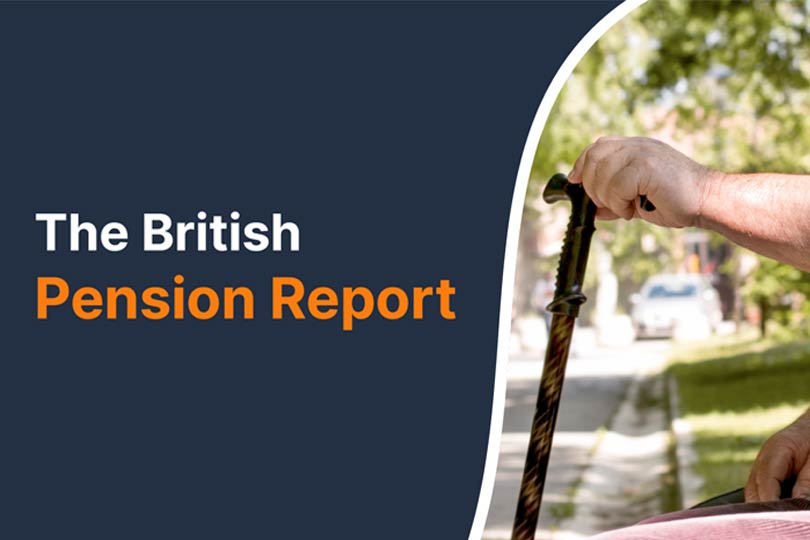What is a Pension?
You need a pension. Without one, you may not have enough money to retire.
Don’t rely on the state pension; it’s likely not enough to live on.
Don’t panic; I’ll help you with all the jargon and make it really straightforward. You can have one set up in a few minutes and then you just leave it to do its thing.
My key takeaways
- Everyone needs a pension to provide for their retirement
- Pensions are the quickest way to save for retirement, as they attract pension tax relief
- You can save into several different pensions but must stay within the limits
- You can access your personal pension when you reach 55, your Workplace pension between 60 and 65, and your State Pension when you reach 66
There are a few details, including pension types and rules for withdrawing your pension, that I will walk you through.
How does a pension work?
A pension is like a long term savings account designed to provide for your retirement.
There are some key differences between a pension and a savings account.
- You can’t access the money in your pension until you reach retirement age (55 in the UK, increasing to 57 from 2028)
- You and your employer can pay into your pension
- Every time you contribute to your pension, you get a top up from the government
- You usually invest your pension – don’t worry, there are simple solutions for anyone with no investment experience
Identifying which type of pension you need
There are three main types of pensions. Which one is best for you will depend on your circumstances. Remember, you can have more than one type of pension and even save into all three at the same time.
Pick which of these best fits your circumstances:
- You work for an employer in the UK – Workplace Pension
- You are self-employed, unemployed, or looking to supplement your State or Workplace Pension – Personal Pension or Self-Invested Personal Pension.
- You’ve paid NI contributions, claimed Universal Credit or received other state benefits, such as carer’s allowance – State Pension
More about the different types of pension schemes
Now that we’ve identified which pension would suit you best, let’s find out a little bit more about it.
Workplace pensions
This is the holy grail of pensions
To qualify for a workplace pension, you need to be between 22 and 55, be working in the UK, and earn at least £10,000 per year. This is the best pension scheme, as your employer is obliged by law to contribute at least 3% of your salary to your pension fund and you are obliged to provide 5%.
The rules surrounding workplace pensions are as follows:
- Your employer must automatically enrol you in a workplace pension
- Your employer must contribute a minimum of 3% of your annual salary to your pension
- You must contribute a minimum of 5% of your annual salary to your pension
- You can opt out of a workplace pension but that’s not usually a good idea
- Should you leave your employer, you can transfer your pension to a new provider or leave it to be paid to you when you retire
- You can claim your workplace pension between the ages of 60 and 65
Personal Pension
A personal pension is a pension you administer yourself. What you get when you retire will usually depend on how much you have paid in. A personal pension has several advantages.
You get to choose your pension provider and how your pension is invested, although there is plenty of help available to those who lack confidence in that area. A personal pension still attracts tax relief on all contributions and anyone can contribute to a personal pension.
The rules surrounding personal pensions are as follows:
- The onus is on you to open a personal pension
- You can choose how much you pay into a personal pension (within the limits)
- You can make regular contributions or lump sum payments
- You will get tax relief automatically added to your contributions
- You can access your personal pension when you reach the age of 55
State Pension
Eligibility for the State Pension and how much you will actually receive once you retire all hinge on how much National Insurance you have paid. NI contributions are typically taken from earnings, although you can top this up if you have gaps as a result of unemployment.
The rules surrounding the State Pension are as follows:
- You will need at least 10 qualifying years on your National Insurance record to get any State Pension or 10 years of National Insurance credits
- You can pay voluntary National Insurance contributions to fill any gaps in those 10 years
- You must be a man born on or after April 6, 1951 or a woman born on or after April 6, 1953, to claim the State Pension
- The full amount you can receive for the 2023/24 tax year is £203.85 a week
Useful information
How much tax relief will you receive on pension payments?
This depends on the kind of pension scheme you are in.
- Workplace pensions are tax efficient because your employer takes your workplace contributions out of your pay before deducting income tax.
- Personal Pension providers will usually claim tax relief from the government at the basic 20% rate and add it to your pension pot.
If you pay income tax above the 20% rate, then you are at liberty to claim the additional tax relief on your self assessment tax return on any money you have placed in a personal pension fund.
How much can you pay into your pension?
There are annual and lifetime limits, set by the government, on how much you can pay into your pension in any given tax year without incurring tax charges. For the 2023/24 tax year, the annual allowance is £60,000.
You can choose to place your entire allowance into one pension or split it across several pension schemes.
There is also currently a lifetime allowance of £1,073,100.
What happens if you pay more than the annual allowance?
Should you pay more than the annual allowance into your pension, the amount over and above the annual allowance will be added to your taxable income for the tax year.
This means that you will pay tax on this, and it becomes a less efficient way to save.
So what can you do with additional funds that you want to pay into your pension over the annual limit?
If you are fortunate enough to want to save more than the annual allowance into your pension, as opposed to exceeding the annual allowance, you could consider putting the additional funds into a stocks and shares ISA.
Here you can grow your money through long term investments, free from any income tax and take advantage of a further allowance of £20,000 for the 2023/24 tax year.
For anyone between the ages of 18 and 39, a Lifetime ISA is also an excellent choice. A Lifetime ISA attracts a government bonus of 25%; however, there are some restrictions, including an annual allowance of £4,000.
With this kind of decision, it is often prudent to seek the advice of a financial adviser.
How do you open a Personal Pension?
It’s easy to open a personal pension. All you need to do is choose a provider. I’ve done plenty of research on this so simply head to my article: Best Pension Providers for Private Pensions
Here you will find plenty of information on providers, how to choose the best one for you, the top 10 best performing funds, and how to transfer and consolidate your existing pensions.
How do I invest my pension?
You obviously want your pension to grow to provide you with an income in retirement. That’s where investing comes in. Pensions are long term investments, meaning there is usually plenty of time to ride out any volatility in the market.
How your pension is invested will depend on the type of pension you have.
Workplace Pensions
When you have a Workplace Pension, your money will automatically be invested for you in a pension fund. The fund will be selected by your pension scheme with the aim of growing the pensions of its members.
As long as you are happy with this arrangement, there is nothing more for you to do here. If you are unhappy and would like to change your fund, you should contact your workplace pension scheme provider.
Personal Pensions
Personal Pensions will require more input from you on how your pension is invested. The provider will usually provide a selection of funds and some support to help you choose, although this can vary.
You will usually be able to access some information on the funds available, including:
- How the fund is invested
- What returns the fund has made historically
- What the fund costs
- What the risk rating is for that fund
How do I withdraw my pension?
The current age at which you can withdraw your pension is 55; however, this is rising to 57 in April 2028.
At this point, you will be at liberty to start claiming your pension. There are several ways that you can do this, including:
- Take a 25% tax free lump sum
- Take it out as cash
- Use your pension to purchase an annuity, which will give you a guaranteed income for life.
- Invest it to get a regular income, known as a flexi-drawdown.
Which of these options is best will depend on your pension contributions and several other personal factors.
The State Pension age is 66, at which time you will receive a weekly sum, depending on your NI contributions, paid straight into your bank account.
What is a Defined Contribution Pension?
Defined Contribution Pensions can be a Workplace Pension or a Private Pension. The retirement income you receive will depend on how much you contribute to your pension pot and how much you have gained from investing it.
A defined contribution workplace pension is the most common type of pension savings.
What is a Defined Benefit Pension?
A Defined Benefit Pension scheme is one where the money paid to you on your retirement is based on how many years you’ve been a member of your employer’s scheme and what salary you have earned at the time you retire.
This pays out a secure income for life that increases with inflation. Defined Benefit Pension Schemes are usually paid to those working in the public sector.
What are Stakeholder Pensions?
Stakeholder Pensions can be offered by an employer or you can start one yourself. They offer low and flexible minimum contributions, capped charges of 1.5% per year, and a default investment strategy.
Pensions Frequently asked questions
What is the most common type of pension?
How are pensions paid?
Please note:
The value of your investment can go down as well as up and you may not get back the full amount you invested. Past performance is not a reliable indicator of future performance.
This blog is for general information only and does not constitute advice. The information is aimed at retail clients only. All contents are based on our understanding of HMRC legislation, which is subject to change.


















